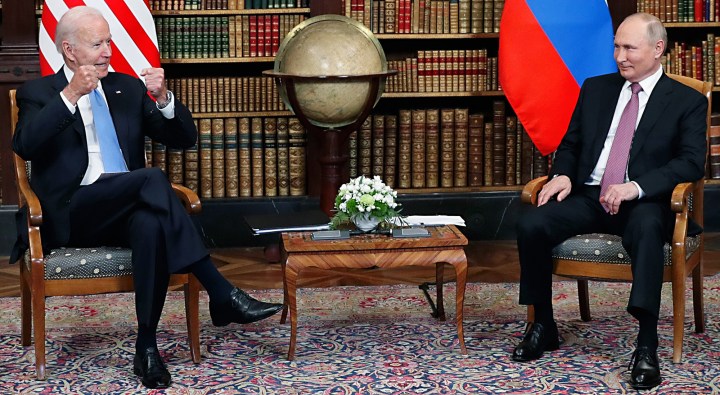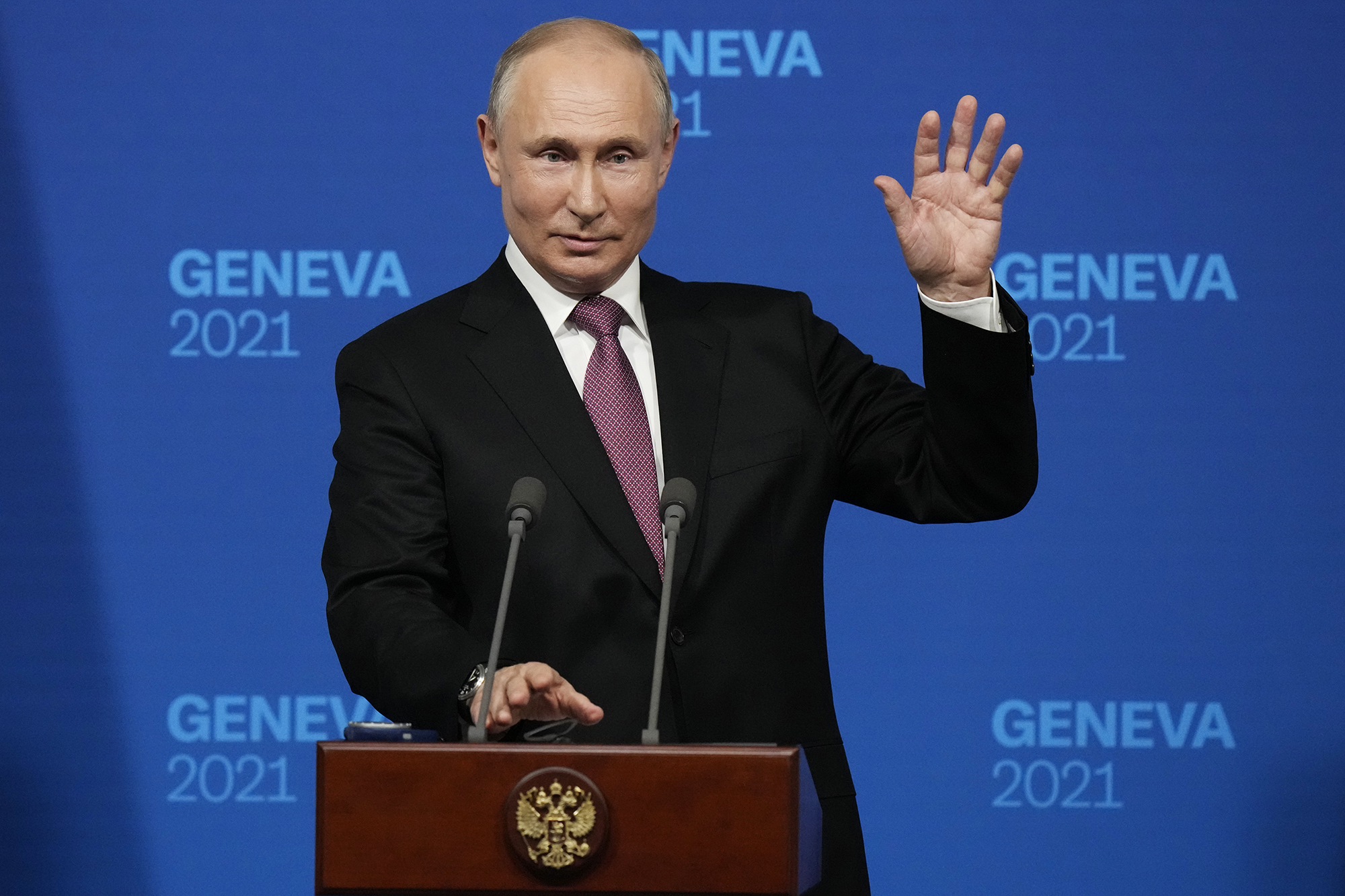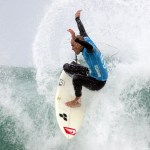GEOPOLITICS
Power politics: Biden and Putin advanced mutual interests in Geneva, but watch this space going forward

The highly anticipated summit between the US and Russian presidents is over. What happened? Who won? Was it a shutout, a slam dunk, a hat-trick?
US President Joe Biden had quite a week (right along with everybody who follows international relations issues). First, there were three separate (although significantly overlapping), sequential leaders’ summits — and the finale was the face-to-face summit between Biden and Russian President Vladimir Putin. The first three comprised the annual G7 meeting that took place this year (it rotates among the participants) at the Cornwall seashore in Britain. Then there were gatherings with the leaders of the Nato nations and a meeting with the leaders of the members of the European Union. But the main event was always going to be the meeting between the Russian and American presidents at the 300-year-old Villa le Grange in Geneva, Switzerland, situated in the midst of a manicured garden and overlooking the lake.
This year’s meetings were in dramatic comparison to the often-acrimonious, even chaotic gatherings ex-president Trump had participated in. (That behaviour was in stark contrast to his obsequious, fawning, and dreadfully embarrassing behaviour when he met with the Russian leader in Helsinki in 2018, where he had practically kissed Putin’s ring and then publicly dissed his own government. Fiona Hill, the former National Security Council Russia expert told television audiences she had nearly elected to fake an emergency medical event at the Helsinki summit in order to bring those proceedings to a sudden halt.) In all three of this year’s group gatherings, Biden’s events often seemed more like an extended group huddle and hug than high-level diplomacy dealing with the fate of millions. Lots of love and only the very occasional jostling.
Those previous angry, public disagreements at the group meetings during the previous administration — mostly over trade disputes or budgets for mutual defence preparedness in the case of Nato — and the attendant personal slights were practically the trademark of the ex-president’s international conference demeanour. By contrast, Biden’s meetings — at least at these three gatherings — were largely exercises in the modest bonhomie appropriate to the behaviour of serious-minded adults who have gathered together to confirm common understandings of their joint tasks.
So what came out from those meetings? For one thing, there was broad agreement to support a major enhancement of the G7 nations’ provision of Covid vaccines and related funding to the rest of the world, especially now that the US and a number of other nations have begun to have substantial success in manufacturing the vaccines in large amounts and then actually vaccinating their respective populations against Covid. Further, there was general agreement that major corporations operating internationally must be prepared to pay a bigger slice of their revenue in taxes to the countries where they operate, rather than effectively avoiding tax regimes by means of clever accounting and even cleverer cost-shifting and transfer pricing. In addition, there was general agreement the Western nations must present a more united (although here it was not entirely unanimous) front towards Chinese behaviour on international economics and trade issues.
Important, too, a 17-year-long trade dispute between the US and the EU over aeroplane manufacturing subsidies was finally resolved. As The Washington Post reported, “Tuesday’s deal will quell fears that the EU and the United States could hit each other with tariffs on goods as varied as French wine and Harley-Davidson motorcycles, as they did in recent years as part of the airplane subsidy dispute, which involves Boeing and Airbus. ‘Today’s announcement resolves a long-standing trade irritant in the U.S.-Europe relationship,’ said US Trade Representative Katherine Tai. ‘Instead of fighting with one of our closest allies, we are finally coming together against a common threat.’ Europe also welcomed the deal. ‘This meeting started with a breakthrough on aircraft,’ European Commission President Ursula von der Leyen said in a statement. ‘The agreement we have found now really opens a new chapter in our relationship because we move from litigation to cooperation on aircraft . . . after almost 20 years of trade disputes.’”

US President Joe Biden, Russian President Vladimir Putin and Russian Foreign Minister Sergey Lavrov during the US-Russia summit in Geneva, Switzerland. (Photo: EPA-EFE / PETER KLAUNZER)
There are, of course, still some serious disagreements about steel tariffs imposed by the US during the previous administration. That’s for later, apparently.
Then it was on to Geneva for the big enchilada of meetings for this trip. No, neither Tex-Mex nor real Mexican food was on the menu for the day. In fact, the two presidents did not share any meals together. Instead, the meeting sessions were all business, right from the start, and they actually ended up using rather less time than had been expected or allotted.
The one actually obstreperous moment in the summit came as American reporters and cameramen ended up in a rugby-esque scrum against some Russian security folks when the journalists tried to enter the building via a side door to the villa they had been directed to use, in order to catch the opening moments of the discussions.
After the summit ended, in the post-meeting media availability, Vladimir Putin offered a few cursory remarks and then went directly to the Q and A with journalists. In response to one question, offering some positive spin, he called the just-completed talks “very constructive”, and that “the talks were essentially pragmatic.” And of his American interlocutor, Putin said, “I could see hope in his eyes.” Depictions like that represent some significant steps beyond calling them “direct and frank” when things did not go so well as those words usually mean. While no chairs or punches were thrown, there definitely were some glum, grim faces in the room.
According to Putin, going forward, there will be technical discussions on dealing with cyber hacking, but reporters should not believe any of that nonsense when Americans point their fingers at Russia to identify the prime cyber hacking culprit. By contrast, Putin said there have been such incidents all over the world, almost as if to say, “It ain’t us!” Shades of the 400-pound teenage boy on his bed with a laptop in New Jersey, the description offered by the former US president to explain cyber interference in the 2016 election.
Going forward, there was the possibility of a mutual prisoner exchange, and the plan that the two nations’ respective ambassadors, now cooling their respective heels in their respective homes, will soon head to their actual embassy assignments. And regarding the fate of Russian dissident political figure, Alexei Navalny, Putin engaged in some fanciful, but adroit whataboutism, noting the arrests of Americans involved in the violent 6 January Capitol Hill insurrection and the possibilities that, if convicted, some of those participants might serve many years in prison, almost as if he was asking, “So, who is persecuting dissidents more?”
And, of course, while discussing that issue, Putin declined to even mention Navalny’s name, calling him “that gentlemen”, at least in translation. A wicked sneer usually isn’t interpreted as such at such meetings. On Ukraine, well it was the same old, same old, as he argued that the Americans had instigated a coup and the Minsk agreement of several years ago must govern everything going forward. Not much joy on Crimea or those Donbas difficulties with the Russia-backed insurrection there.
At this point, at least, from the tenor of Putin’s remarks, it remained unknown if there was any actual progress in dealing with some key concerns from the perspective of the Americans. Those include the Russian military buildup in the Arctic, the passage of humanitarian aid to people in Syria, actual nuclear arms talks in the future, and climate change challenges, along with much else that may — in some way — have formed part of the actual (but unreleased) bilateral discussion in the two sessions. Soon enough, of course, the respective spin doctors will get to work, debriefing the media on how it went, with the most favourable comments being attributed to their respective principals. Stay tuned for that, for sure.

Russian President Vladimir Putin speaks during a news conference after his meeting with US President Joe Biden during the US-Russia summit in Geneva, Switzerland. (Photo: EPA-EFE / ALEXANDER ZEMLIANICHENKO / POOL)
In US President Joe Biden’s remarks and media questions that followed separately, out of doors, in the villa’s gardens under a bright, blue sky rather than a cramped media centre as with his counterpart, Biden underscored that he had explained to Putin that he was not anti-Russian, but rather, pro-American. For the American, the overall tone of the discussions was civil and straightforward, not “hyperbolic”. Human rights are part of his country’s very fabric and thus they must necessarily be raised in cases like Alexei Navalny, and, if he should happen to die in prison, there would be consequences.
From Biden, we also heard there will be further discussions on strategic stability responding to the “new and dangerous weapons that are coming on the scene now” — although there was no formal timetable for such discussions. On cyber hacking and ransomware, after identifying sixteen critical areas that should never be subject to attacks, there will be technical discussions as well. (Biden also noted, just by the way, that Russian gas pipelines to Europe might also be vulnerable to such hacking and ransomware efforts.) The Arctic as a peaceful, non-militarised area and limiting the possibilities of Iranian nuclear proliferation also were topics of importance, as were, inevitably, events in Ukraine (such as Russian support for rebels in the eastern part of the nation) and Belarus (with the forced landing of an international flight and the forcible removal of an opposition political figure). As he said, “I did what I came to do…to advance our mutual interests.” But “there is much more work to be done.” Further, according to Biden, his opposite number indicated he wanted to help on Afghanistan as the US finally withdraws and that the Russians want to be helpful on Iran as well.
In reference to persistent questioning about what would happen if Alexei Navalny dies in prison, Biden said the impact “would be devastating.” Moreover, if Russia wishes to encourage greater foreign investment, it is really bad for business if they hold an American businessman under house arrest. (Hint, hint.) In response to the possibilities of the two nations spiralling down into a new cold war, Biden asserted he did not think Putin was looking for a new cold war with the US, but if basic norms over cyber hacking are not observed, “we have significant cyber capability too.” Maybe not a red line, but at least a faint, dotted one.
After the separate media events, the two leaders released a joint statement outlining their shared objective of continuing to work toward a more stable and predictable relationship between the two nations that includes reducing the threat of nuclear war. As the statement reads, “Today, we reaffirm the principle that a nuclear war cannot be won and must never be fought.”
The statement added the United States and Russia would continue working together on future arms control through “an integrated bilateral Strategic Stability Dialogue in the near future that will be deliberate and robust.”
The two leaders agreed that their countries have “demonstrated that, even in periods of tension, they are able to make progress on our shared goals of ensuring predictability in the strategic sphere, reducing the risk of armed conflicts and the threat of nuclear war.”
And there it was, as the two leaders boarded their respective aeroplanes and headed back to Washington and Sochi.
So far at least, despite some dog in the manger carping by Republican legislators that Biden had given Putin too much credibility just by meeting with him (presumably they have already forgotten the former president’s execrable exercise in Helsinki in 2018), the consensus view of knowledgeable observers is that with the bar placed so low, Biden had come out ahead in the meeting. Typical was Columbia University Russia specialist Stephen Sestanovich’s comment that, “A Russian friend of mine — no friend of Putin, I should add — said his definition of a good summit would be one that a) ended early, b) was followed by no joint news conference, c) got Putin no invitation to visit the White House (he hasn’t visited in more than 15 years!) and d) produced only an agreement to keep the experts talking. Check. Check. Check. Check.”
While Washington Post columnist Jennifer Rubin opined, “It is not often a reporter’s question becomes the most memorable moment of a US-Russia summit. But ABC News’s Rachel Scott, in her grilling of Russian President Vladimir Putin, showed the strength of confident democracies over defensive autocracies and the majesty of a free press: Putin’s response devolved into third-rate whataboutism with a rambling remark about the 6 January insurrection. It did not go unnoticed that he didn’t quibble with the premise of her question, namely that he runs a brutal autocracy. (It is also significant that his assertion that protesters were the victims of government aggression is identical to the talking points of some Republicans.)”
Now Joe Biden is back in Washington as he must grapple with a recalcitrant Republican delegation to the Congress on, well, pretty much everything he wants to accomplish on the economy, immigration, and so much more. Foreign policy performances are so much easier to organise with the president largely supreme in that area in the US government. Meanwhile, Vladimir Putin has returned to Russia to ponder how he can build his own nation’s sluggish economy, somehow resolve his commitments in Syria, Libya, eastern Ukraine, and elsewhere. Oh, and he will undoubtedly want to check up on developments in the cyber hacking campaign he doesn’t know he has, by those so-called private agents he doesn’t know exist. And both leaders can spend their days figuring out how they can deal with a China that seemingly inexorably continues to grow in wealth and economic heft. DM



















 Become an Insider
Become an Insider
Comments - Please login in order to comment.